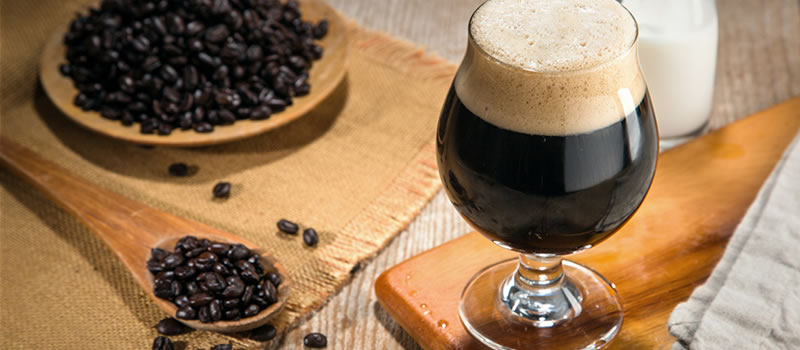How alcohol and caffeine can affect the digestive system
Published April 13, 2021

If you’re like most adults, caffeine is a part of your daily routine and helps wake you up and conquer your day. But while there are benefits of coffee it may pose problems for your digestion. Excessive caffeine can have a negative impact on gut health and cause bowel problems. Likewise, there can be effects of alcohol on the digestive system when over consumed.
The effects of caffeine on digestion
Drinking too much caffeine from coffee, tea or other caffeinated beverages can cause or worsen digestive symptoms in some people. Caffeine relaxes the lower oesophageal sphincter (LOS), which is a small band of muscle that sits between the oesophagus and the stomach. Normally the LOS closes the oesophagus off from the stomach, preventing food from travelling from the stomach back up into the oesophagus. Caffeine can cause the LOS to relax, which can allow food to travel backwards triggering indigestion and heartburn in some people.
Due to its acidic nature, caffeine and coffee have also been shown to enhance the production of stomach acid secretions and cause irritation. In addition, caffeine‐containing drinks have laxative potential. Coffee and bowel problems include overstimulation of the gastrointestinal tract which can produce a laxative effect.
How much is too much?
Some people are more sensitive to caffeine than others; subsequently, caffeine tolerability will differ from person to person. Based on the unfavourable effects of caffeine on the digestive system, anyone suffering from a digestive problem should consider eliminating or at least cutting back on caffeine consumption, but it’s important to wean off slowly. Swap your coffee for green tea, which has lower caffeine content or try a coffee alternative such as a dandelion latte.
How is caffeine metabolised?
Caffeine is first absorbed in the gut, with some metabolised in the liver and the remaining amounts going into the bloodstream and crossing the blood/brain barrier into the brain. Coffee reaches peak concentration in our bodies after about 15–120 minutes after oral consumption. Half of the caffeine consumed will have been metabolised after approximately five hours, leaving the bloodstream and being expelled from the body in urine.
The effects of alcohol on digestion
There are negative effects of alcohol on the digestive system. Drinking excessive amounts of alcohol can affect the stomach and digestive tract in many ways.
Just like coffee, alcohol can weaken or loosen the lower oesophageal sphincter and
contribute to symptoms of heartburn.
Second, alcohol makes the stomach produce more acid than usual, which can lead to irritation and inflammation of the stomach lining.
Third, there are more than 500 species of bacteria in the intestine. Homeostasis achieved when there is a balance of “good” and “bad” bacteria. Dysbiosis can occur if bacterial balance is disrupted. Overgrowth of bacteria can also disrupt the gut microbiome, with studies showing that alcohol promotes both dysbiosis and bacterial overgrowth. This can lead to an increase in endotoxins being released which can activate proteins and immune cells that promote inflammation.
How is alcohol metabolised?
If we are drinking socially (that is consuming an average of two drinks) we can usually metabolise alcohol with minimal deleterious effects. Once alcohol is consumed orally, alcohol is absorbed into the blood from our stomach and small intestine. If the stomach is empty, peak blood alcohol levels occur about 30 minutes after consumption. If there is food in the gastrointestinal (GI) tract, it can reduce the rate of alcohol absorption.
The stomach metabolises a small amount of alcohol by an enzyme alcohol dehydrogenase (ADH) which breaks down the alcohol into acetaldehyde. Women have lower ADH activity compared to men in their stomach meaning more alcohol reaches the bloodstream. Most of the alcohol is metabolised in the liver at a steady rate. However, the rate at which it is metabolised varies between individuals, depending on how much alcohol has been consumed, the efficiency of liver enzymes, genes and the use of medications. Other factors that can influence the rate of alcohol absorption and metabolism include gender, age, body weight, consumption of food and percentage of body water.
How much is too much?
When it comes to alcohol intake, it’s important to stick to the lower risk guidelines. It’s recommended that healthy men and women drink no more than two standard drinks on any day and no more than four standard drinks on a single occasion. To lessen the effects of alcohol on digestion, ensure you eat something beforehand and drink plenty of water. If you’re prone to stomach distress, it might be best to avoid drinking completely.
The brain-gut axis and how the digestive system responds to the ways alcohol and caffeine affect the brain
The connection between the brain and gut is an example of how there are interconnected parts of our body that directly affect each other. The gut-brain axis refers to the bidirectional flow between the brain and the gut. The brain sends the “fight or flight” signals (sympathetic nervous system) or “rest and digest” signals (parasympathetic nervous system) to our digestive tract to influence functions such as rate of stomach emptying, nutrient absorption and inflammation level. This brain-gut axis is also the reason why stress affects digestion.
In our digestive system, there is also a nervous system — the enteric nervous system. It is made up of millions of nerve cells and immune cells which signal to the brain important information such as if the stomach is bloated, infected or if there is poor blood flow.
When consumed in large quantities, alcohol can overwhelm our digestive system and liver and cause acute and long-term damage. Alcohol can lead to inflammation in the digestive system, alter gut bacteria.
Dangers of Mixing Alcohol and Caffeine
Mixing alcohol and caffeine can be dangerous. The depressant effects of alcohol may be masked by caffeine, making you feel more alert than you actually are and lead to drinking more alcohol and lead to greater impairment without realising. Caffeine does not influence the metabolism of alcohol, so it is ineffective in reducing the impairment caused by too much alcohol.
How you may benefit from giving up alcohol and caffeine
Reducing your alcohol can lead many benefits including:
Health and wellbeing: Limiting alcohol consumption can reduce feelings of mild anxiety and minimise your risk of developing long-term health issues.
Relationships: Overconsumption of alcohol can affect relationships through reduction of sex drive, argumentative and being a poor role model for kids.
Financial: Buying alcohol frequently can be expensive and may even lead to issues at work. Curbing alcohol consumption may lead to increased performance at work and even minimise accident risks which could impact on your ability to work.
Reducing caffeine intake may lead to some benefits also, but cut down slowly because if you have become dependent on it you could experience withdrawal symptoms which include headaches, fatigue, concentration issues, muscle pain and nausea.
By limiting caffeine intake you can reduce effects that come from consuming too much caffeine which include:
- headaches
- dizziness
- feeling “jittery”
- poor sleep
- dehydration.
MAT-AU-2003183
Learn about which Nature's Own product may be appropriate for you.
SEE THE PRODUCTS HERE







